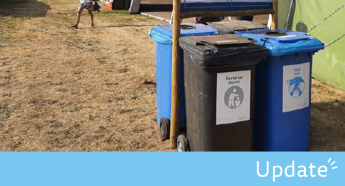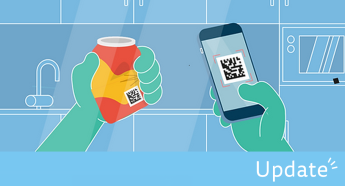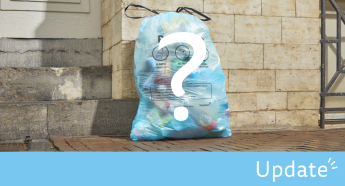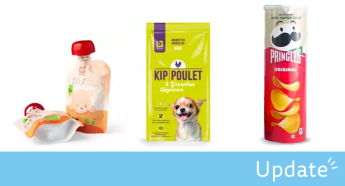Recycling of coffee capsules runs at full speed
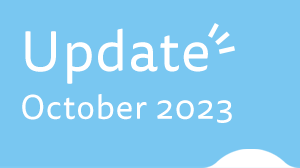
Since 1 January, Belgian citizens have been allowed to sort their coffee capsules in the blue bag. The first results appear promising. Meanwhile, the new eddy-current separators in the sorting centres ensure maximum sorting of the capsules, together with other small aluminium. Recycling is also running at full speed.
Capsules for coffee and other hot drinks such as tea or chocolate milk are increasingly popular with consumers. The vast majority of capsules are made of aluminium, a valuable raw material that can be perfectly recycled. This is why Fost Plus partnered with three major companies in the industry - Nespresso, Nestlé and JDE Peet's - to find a sustainable recycling solution. These three major players finance all the costs linked to the collection, sorting and recycling of coffee capsules, as well as the installation of the necessary machines in the sorting centres.
Volumes take off
On 1 January, we launched collection via the blue bag. The announcement attracted a lot of media attention, so people started to offer their beverage capsules to PMD fairly quickly. We also noticed this in the sorting centres. The capsules have a very strong visual presence in the PMD bags and the volumes collected are on the rise.
To sort the relatively small capsules from PMD, our five sorting centres were equipped with an additional eddy current separator at the very beginning of the process. The technology is now fully up to speed, allowing us to recover the vast majority of capsules.
Incidentally, the eddy current separation has also had a positive effect on other small aluminium packaging, which we can now sort out more easily. Just think of the aluminium screw caps of wine and olive oil bottles, the aluminium sealing foil of yoghurt pots or small balls of aluminium foil. They are all recycled together with the coffee capsules.
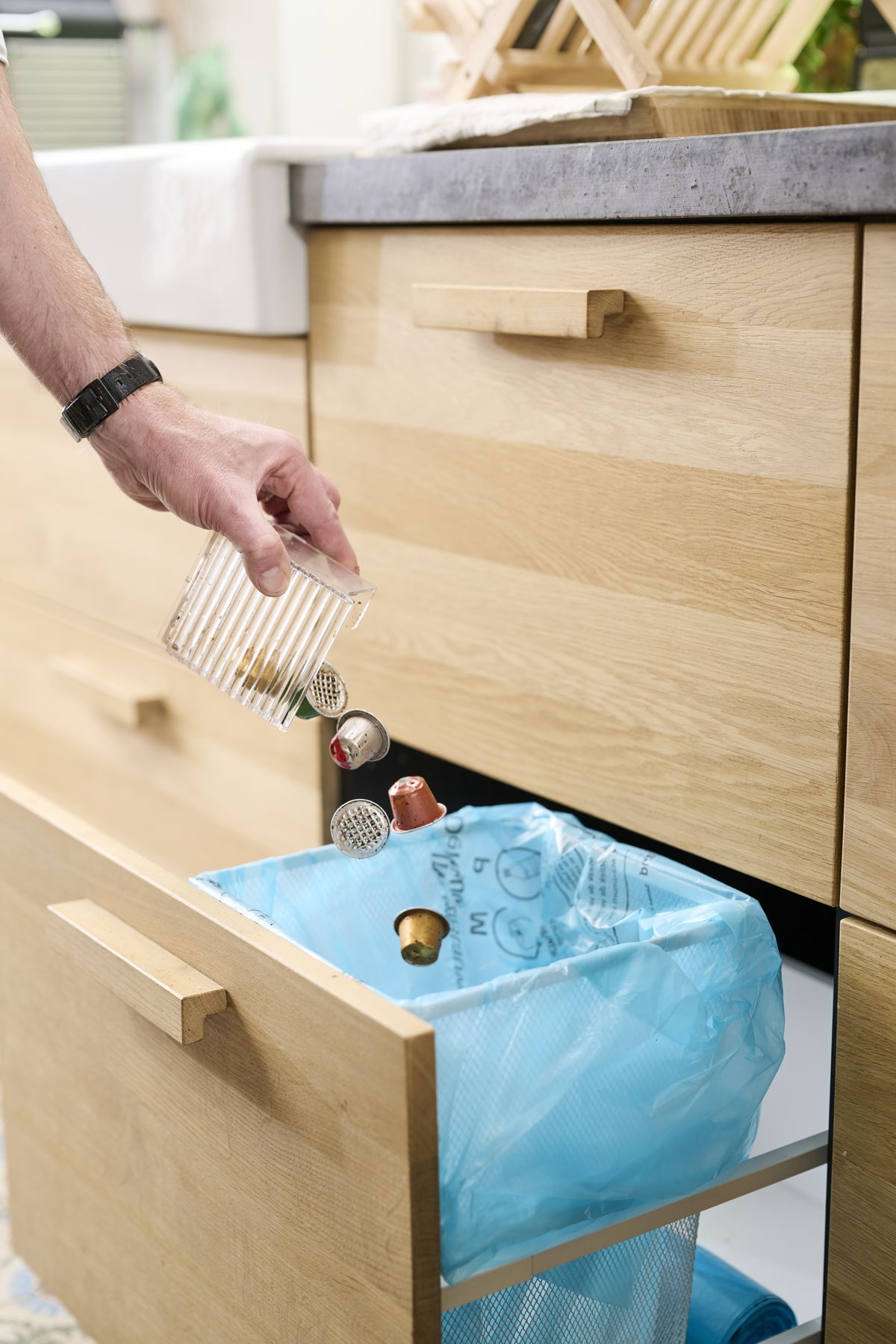
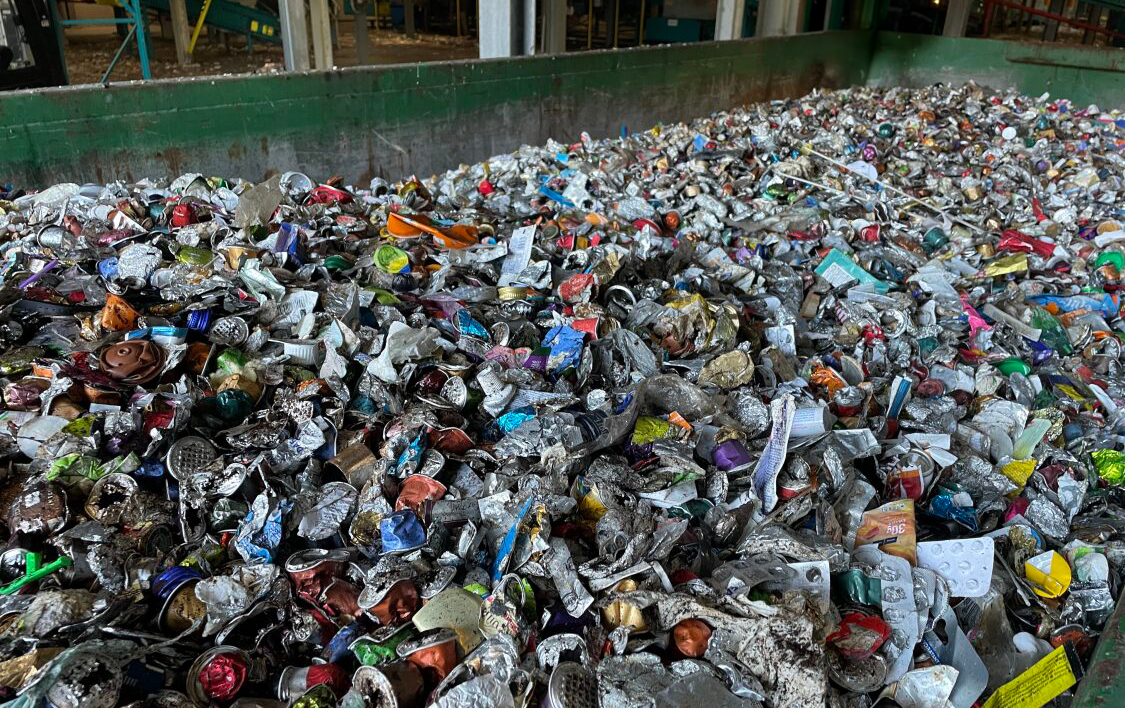
The material flow 'small aluminium' in the sorting centre of Val'Up
Full-fledged recycling solution
Meanwhile, recycling is running at full speed. We work with two recycling partners, one from Germany and one from the Netherlands. In this way, we keep recycling close to home. Soon, a third partner will be added, also from Germany.
They use two different recycling processes: mechanical recycling, where the aluminium packaging is crushed, and pyrolysis, where high temperatures are used to recover the aluminium.
In both cases, the end result is a pure stream of aluminium that can be used for various new products, including as components for cars and electronic devices and various applications in the construction sector.
Room for improvement
Nine months after its introduction, it is already clear that beverage capsule collection can be called a success. Although there certainly remains room for improvement. If we compare the volumes collected with what is put on the market, we see that additional efforts are needed to get everyone on board. Continuing to raise awareness is therefore the message.
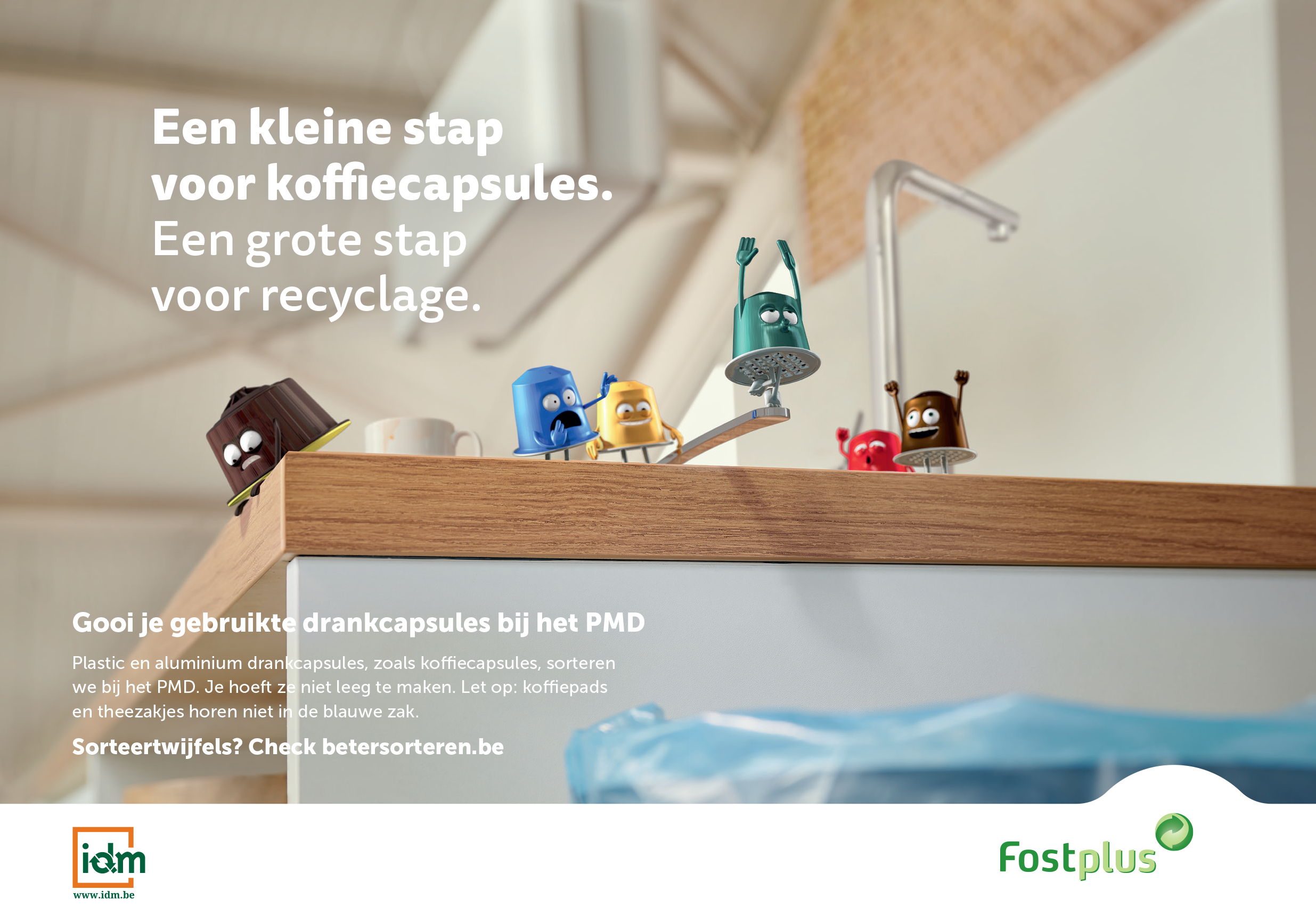
As part of the communication offer to intermunicipal waste companies, the coffee capsules that are allowed in the blue bag from now on, are highlighted. Intermunicipial waste companies can inlcude both ads and videos in their communication plan.

